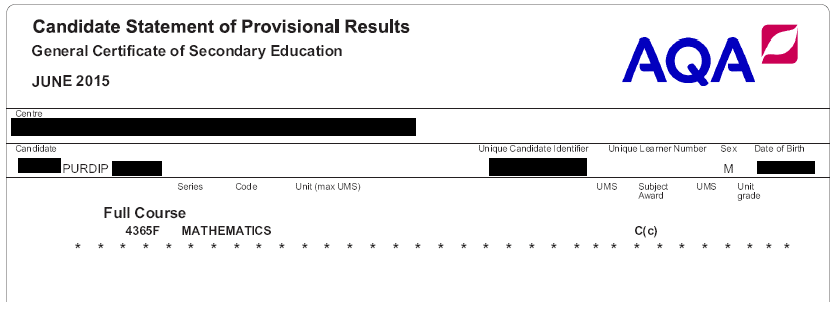I talked about the art of teaching without teaching philosophy in a previous post but how do you apply it in practice?
Before I offer you my suggestions, let me remind you of Pareto’s law. Pareto was an Italian economist and he said only 20% of your efforts contribute to 80% of your results. That means, if you are currently working 60 hours in your job, only 12 of those hours will have a direct impact on your student’s results. Thus, it makes sense to reduce some of the 48 hours that do not directly influence your student’s results.
Some of these hours cannot be reduced. For instance, suppose you teach five, one-hour lessons a day. This means you’ll spend 25 hours a week in the classroom. This time cannot be reduced as you have to be present during these lessons.
The rest of the time is spent on planning lessons and marking your student’s work. The latter, marking your student’s work, has the biggest drain on your time. Marking your student’s work is a tedious and time-consuming process. Even worse, it has no direct impact on your student’s results. As a matter of fact, it can hinder their progress as the student cannot see, first-hand, where they’re going wrong. It’s very important students identify their own mistakes so they can eliminate them going forward.
That’s why you must allow your students to mark their own work. Not only will it reduce your workload but it will boost results in the long run. You could outsource this activity to a PA (this is what the head of maths from my old high school does) but the issues with this is it’ll eat into your salary as you have to pay this assistant and again, students will not see where they’re going wrong.
When you’re looking for worksheets/exercises to give to your students, make sure they come with solutions too. Detailed solutions are not always ideal. Model solutions work best because it gives students a chance to figure out how they arrived at the final answer. Maths is all about critical thinking and the only way students develop this is if they ‘go through the struggle’ and think deeply about each answer. If the worksheet/exercise does not provide answers with it too, don’t use it.
You should set the worksheet/exercise in lesson. Go through 1 or 2 examples with the entire class and let the student work through the rest on their own, in silence. For homework, you would provide them with the detailed/model solutions and instruct the student to mark their own work and correct any questions they got wrong in class. In the following lesson, you will go through any last minute problems. Then, you simply repeat this process.
By allowing the students to mark their own work, you’ll instantly cut your workload by, at least, 25%. You may have to take in their work on the first 2 or 3 occasions to verify their marking but after a few lessons, you won’t have to take it in any longer. As long as you provide model solutions, student’s marking will be fairly accurate. The only thing you should do is make a note of their scores in an Excel spreadsheet. This will allow you to gauge their performance over time.
I would strongly advise that you create a Facebook group for your maths class outside of lesson. Your students will inevitably run into problems whilst they complete their homework and if there isn’t a platform to post their problems on, progress will stagnate. Ultimately, progress is made at home and not entirely at school.
Creating a Facebook group is simple; all you need to do is create a Facebook account, add all of your students as friends (the majority of kids are on Facebook these days) and invite them to join your group. This gives your class an opportunity to share their problems with their peers. I used to have a similar service when I was studying at university and it works very well. There is always a small group of students who outperform the rest of the class so you could let them answer your student’s queries on your behalf. Hence, reducing your workload even more.
There is a danger, however, with giving basic revision questions/exercises in lesson; student’s are not learning how to apply these principles in an exam context. You’ve probably heard your students say this a number of times before: “The questions in the textbook are straightforward but when it comes to the exam questions, it is a totally different story”. The reason why so many students underachieve in their maths exams is because they fail to see the link between maths concepts and exam-style questions. That’s why you’re better off giving past paper questions to your students from the outset.
I used to give basic revision questions to students I tutored in my local area but I’ve stopped this altogether. I only focus on past paper questions and exam technique because this will have a direct impact on their results and not necessarily basic revision/exercise questions. The great thing about past papers is they come with model solutions so you can give these to your students too (as homework).
Private schools follow a similar approach in their teaching; they focus solely on past paper questions and exam technique. That’s why they’re the best performing schools in the country. If you want your maths results to improve, what should you do? You copy somebody who is doing better than you. In this case, the private school approach works very well so you should do the same!
The other issue that drains your time is planning your lessons but what if I provided you with ready-made lesson plans? All you’d need to do is use them. Then you won’t have to spend any time on planning your lessons anymore. This is what my GCSE Maths For Schools program is all about. I provide students/teachers with a ready-made plan for them to follow. Teacher’s workloads are reduced whilst their students results improve – a win-win situation for both parties. A number of schools across the UK are using my program and they’ve already seen a boost in results. Why don’t you use it in your school as well? Visit the home page to find out how you can trial it in your school.


